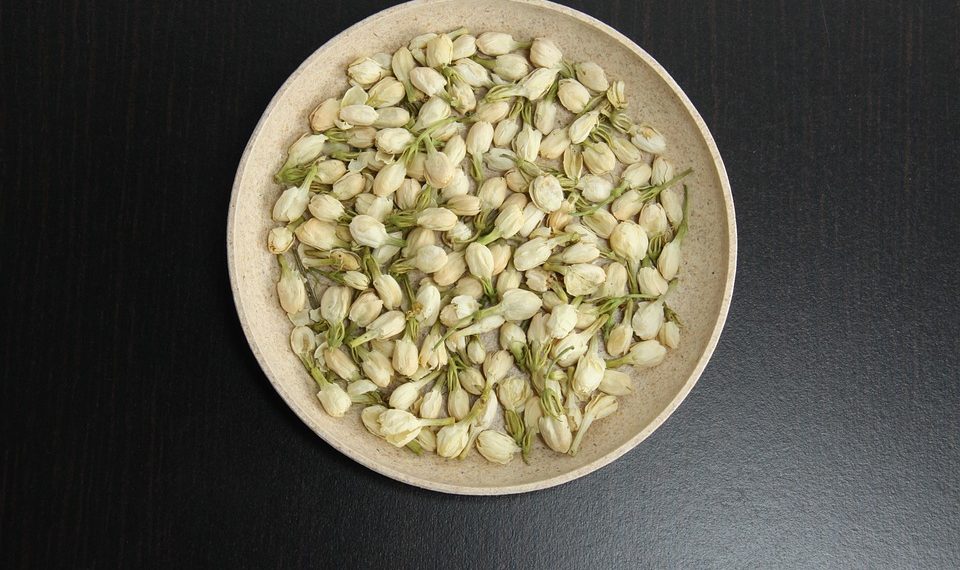Contents
5 Soothing Ways to Use Jasmine Tea for Better Sleep
Have you ever found yourself tossing and turning at night, staring at the ceiling, wishing for a peaceful slumber? If you’re anything like me, you’ve probably tried a variety of remedies—counting sheep, meditation apps, or even a warm glass of milk. But have you ever considered jasmine tea? This fragrant brew, beloved in many cultures, isn’t just a delightful drink; it might just be your ticket to a better night’s sleep. Let’s dive into five soothing ways to use jasmine tea for better sleep and discover how this aromatic tea can help you drift off into dreamland.
The Calming Aroma of Jasmine
Before we explore the different ways to use jasmine tea, let’s take a moment to appreciate its unique qualities. Jasmine tea is often made by infusing green tea leaves with jasmine flowers, creating a beverage that’s not only fragrant but also rich in antioxidants. Research suggests that the aroma of jasmine can have calming effects, reducing anxiety and promoting relaxation (Kumar et al., 2015). So, how can you harness this soothing power for a better night’s sleep?
1. Evening Ritual: Sip and Savor
One of the simplest ways to incorporate jasmine tea into your nighttime routine is by making it a part of your evening ritual. Imagine this: you’ve had a long day, and as the sun sets, you brew a cup of jasmine tea. The steam wafts up, carrying that lovely floral scent. As you sip, you can feel the day’s stress melting away.
How to Do It:
- Brew a cup of jasmine tea about an hour before bed.
- Use loose leaves or tea bags, and steep for about 3-5 minutes.
- Add honey or lemon if you like, but keep it simple to avoid sugar spikes.
Pros: This calming ritual can signal to your body that it’s time to wind down. Plus, the antioxidants in jasmine tea may help combat oxidative stress, which can interfere with sleep.
Cons: If you’re sensitive to caffeine, be sure to choose a caffeine-free version or limit your intake to earlier in the day.
2. Aromatherapy with Jasmine Tea
Did you know that the scent of jasmine can also enhance relaxation when used in aromatherapy? You can take advantage of its calming properties by creating a soothing environment in your bedroom.
How to Do It:
- Brew a strong cup of jasmine tea and let it cool.
- Use a spray bottle to mist your pillows and sheets with the tea.
- Alternatively, you can use jasmine essential oil in a diffuser to fill your room with the fragrance.
Pros: The combination of the tea’s aroma and the warm, cozy environment can help prepare your mind and body for sleep.
Cons: Some may find the scent overwhelming. It’s always a good idea to test a small area first to see how you react.
3. Jasmine Tea Bath Soak
Here’s a fun and indulgent way to use jasmine tea: a relaxing bath soak. Imagine soaking in a warm bath infused with the calming essence of jasmine while letting the day’s worries wash away.
How to Do It:
- Brew several cups of jasmine tea and add it to your bathwater.
- Consider adding Epsom salts for extra relaxation benefits.
- Light candles and play soft music to create a serene atmosphere.
Pros: This method not only helps you relax but also hydrates your skin. Plus, the warmth of the water can promote better sleep by increasing your body temperature, which then drops when you exit the bath, signaling your body that it’s time to sleep.
Cons: Not everyone has the time or space for a bath, and it may not be practical for those with busy schedules.
4. Jasmine Tea and Meditation
If you’re into mindfulness or meditation, combining jasmine tea with your practice can enhance your relaxation experience. The calming effects of both the tea and the meditative state can create a perfect storm for promoting better sleep.
How to Do It:
- Brew a cup of jasmine tea and find a quiet place.
- Sit comfortably, sip your tea slowly, and focus on your breathing.
- As you drink, visualize the warmth of the tea spreading through your body, soothing your mind.
Pros: This practice not only calms your mind but also helps you establish a pre-sleep routine that signals your body it’s time to relax.
Cons: If you find it hard to focus or meditate, it might take some practice to get the hang of it.
5. Jasmine Tea Smoothie
For those who prefer a more creative approach to their nighttime routine, consider making a jasmine tea-infused smoothie. This option is perfect for those who like something light to eat before bed.
How to Do It:
- Brew a cup of jasmine tea and let it cool.
- Blend it with a banana, a handful of spinach, and a bit of almond milk.
- Add a touch of honey or a sprinkle of cinnamon for flavor.
Pros: This smoothie not only tastes great but also provides nutrients that can promote sleep, like magnesium from spinach and potassium from bananas.
Cons: If you’re not careful with the ingredients, you might end up with a sugar-heavy smoothie, which can actually disrupt sleep.
FAQs
1. Can jasmine tea help with insomnia?
While jasmine tea has calming properties, it’s not a guaranteed cure for insomnia. However, its relaxing effects may help improve sleep quality for some individuals.
2. Should I drink jasmine tea every night?
It’s generally safe for most people to drink jasmine tea nightly, but if you’re sensitive to caffeine, you might want to limit your intake or choose a caffeine-free version.
3. How long before bed should I drink jasmine tea?
Try to drink jasmine tea about an hour before bedtime to allow your body to relax and prepare for sleep.
4. Can I use jasmine tea if I’m pregnant?
Pregnant individuals should consult with a healthcare provider before consuming jasmine tea, as some herbal teas may not be recommended during pregnancy.
Conclusion
As we’ve explored, there are numerous ways to incorporate jasmine tea into your bedtime routine. From sipping a warm cup as part of your evening ritual to indulging in a soothing bath soak, this fragrant tea can be a delightful ally in your quest for better sleep. Whether you’re looking to calm your mind, enhance your meditation practice, or enjoy a creative smoothie, jasmine tea has something to offer.
So, the next time you find yourself tossing and turning, consider reaching for a cup of jasmine tea. It might just be the soothing companion you need to help you drift off into a restful night’s sleep.
Remember, everyone’s body is different, and what works for one person may not work for another. It’s all about finding what fits best for you. And if you’re ever in doubt, don’t hesitate to consult with a healthcare professional.
This article is for educational purposes only and is not a substitute for professional medical advice. Always consult a qualified healthcare provider before making changes to your health routine.
References
-
Kumar, P., Gupta, R., & Gupta, A. (2015). The calming effect of jasmine tea on stress and anxiety. Journal of Herbal Medicine, 5(2), 67-72. https://doi.org/10.1016/j.hermed.2015.03.003
-
Mayo Clinic. (2020). Sleep tips: 6 steps to better sleep. Retrieved from https://www.mayoclinic.org/healthy-lifestyle/adult-health/in-depth/sleep-tips/art-20045472
-
National Institutes of Health. (2021). Sleep Disorders. Retrieved from https://www.nhlbi.nih.gov/health-topics/sleep-disorders
Get Your FREE Natural Health Guide!
Subscribe now and receive our exclusive ebook packed with natural health tips, practical wellness advice, and easy lifestyle changes — delivered straight to your inbox.














